Written by: Lindsay Kuula
October 15th, 2025
Quick Facts: Should Women Take Creatine?
Yes. Research shows creatine supplementation provides significant benefits for women:
- 11% increase in brain creatine levels in just 8 weeks[^1]
- Improved cognitive function: working memory, fluid intelligence, attention, and reading ability[^1]
- Women have 70-80% lower creatine stores than men, making supplementation especially beneficial[^2]
- Creatine has been studied for its potential to support mental clarity and focus — especially in women experiencing brain fog related to postpartum recovery, hormonal shifts, or lack of sleep[^2][^3]
- Standard dose: 3-5g daily for maintenance; 8-12g for acute cognitive support[^4]
- No cycling required: Safe for continuous daily use[^5]
- Key benefits beyond muscles: Enhanced cognition, mood support, neuroprotection[^2][^3]
This article reflects my personal experience and publicly available research. It is for informational purposes only and not medical advice. Always consult your healthcare provider before starting any supplement, especially during pregnancy or breastfeeding.
This Supplement Gave Me My Brain Back
Before creatine, I was drowning.
Every time I’d start to get my head above water, one more thing would pile on—something I previously would have been on top of without a second thought. I’d show up late to a meeting because I couldn’t find my keys. I’d get a collections notice for a $20 medical bill I completely forgot to pay.
These small tasks I was forgetting started adding up, and suddenly they were having big consequences. As a postpartum mom with ADHD trying to run a business while keeping a one-year-old alive, the mental fog wasn’t simply annoying, it was debilitating.
I knew something had to give. I knew there had to be something out there to help my brain and memory.
What Happened When I Started Taking Creatine
I’ll be honest: if you’d told me six months ago I’d be adding creatine to my morning protein smoothie, I would have laughed. Creatine? Wasn’t that the stuff gym-bros chugged while talking about “gains”?
But then I found the research on creatine for women’s brain health. And I decided to try it.
Within the first day, I noticed something. The brain fog that had felt like a permanent cloud hovering over me started to lift. Not completely, but enough that I could feel the difference. I could recall words faster. I wasn’t searching for vocabulary mid-conversation anymore.
By week one, the difference was undeniable:
- I could focus better on tasks (which, hello, ADHD brain, this is huge)
- I felt mentally quicker—dare I say, even witty
- Conversations flowed more naturally
- I could juggle E’s schedule, work calls, and household tasks without feeling like my brain was running on dial-up
After six months, I feel like I’ve reclaimed a part of myself I thought was gone forever. The version of me that could hold conversations without losing words mid-sentence. The version that could focus on tasks without my brain wandering every three minutes. The version that felt quick, sharp, and capable.
It felt like the clouds parted. That’s the only way I can describe it.
For someone who has battled brain fog through most of life, but especially during pregnancy and postpartum, this wasn’t just a small win. This was life-changing.
Why Don’t More Women Know About This?
Here’s the thing: creatine has a serious branding problem when it comes to women.
For years, the narrative has been that creatine is exclusively for men who want to bulk up. The marketing has been all tank tops, protein shakers, and before-and-after photos of dudes with biceps the size of my thighs. (And my thighs are thicc. With 2 cs.)
But here’s what the research actually shows: creatine isn’t about bulking up. It’s about powering up your cells. And your brain cells? They’re some of the hungriest, hardest-working cells in your body.
Women Actually Need Creatine More Than Men
Despite creatine being one of the most studied supplements, [surprise surprise] women have been significantly left out of the research.[^2]
Here’s what we now know:
- Women have 70-80% lower creatine stores than men[^2]
- This means women may actually benefit MORE from supplementation
- Hormonal changes throughout the menstrual cycle, pregnancy, postpartum, and menopause all affect creatine levels[^2][^3]
Creatine is particularly beneficial during:[^2][^3]
- Menstruation (especially luteal phase when energy dips)
- Pregnancy (increased energy demands)
- Postpartum period (recovery and brain health)
- Perimenopause and menopause (hormonal fluctuations)
The Science That Changed My Mind (The Wow-Factor Stuff)
Here’s what blew my mind when I started researching:
Your Brain Is an Energy Hog
Your brain weighs only 2% of your total body weight but uses 20% of your body’s energy supply.[^3]
Think about that! This fact shocked me and I cannot stop thinking about it! This three-pound organ is sucking massive amounts of energy for it’s size compared to the rest of your body –– just to keep you thinking, remembering, and functioning. And when you’re sleep-deprived, stressed, or dealing with hormonal changes? Your brain needs even MORE fuel.
That’s where creatine comes in.
The Breakthrough Research
While you’re reading this, please imagine me aggressively talk-shouting this. THIS IS HUGE!
A 2025 study from the University of Kansas tested creatine supplementation in people with Alzheimer’s disease for the first time.[^1]
The results:
- 11% increase in brain creatine levels after just 8 weeks[^1]
- Significant improvements in working memory, fluid intelligence, reading ability, and attention[^1]
- 85% of participants showed increased brain creatine on brain imaging[^6]
- 95% compliance rate with minimal side effects[^1]
This was the first study to prove that taking creatine actually increases creatine levels in the brain— and that this boost directly correlates with better cognitive function.[^6]
It’s Not Just for Alzheimer’s
Research shows creatine can:[^2][^3][^7]
- Improve memory significantly in both younger and older adults[^7]
- Enhance working memory and executive function
- Reduce mental fatigue under stress or sleep deprivation
- Support mood regulation (depression rates are 2x higher in women than men)[^2]
- Help with “mom brain” caused by hormonal changes and sleep deprivation[^3][^8]
Some medical experts are now suggesting that creatine’s importance for brain health might eventually be considered on par with exercise and diet.[^6] – This is an opinion from these experts, but for me, that really proved to me how important creatine supplementation was.
For someone navigating postpartum brain fog and ADHD, this was exactly what I needed to hear.
How to Take Creatine (The Simple Version)
Dosage That Actually Works
*** Please consult with a medical professional before starting creatine. The below dosage is just what has worked for my personal experience.
| Goal | Dose | Timeline |
|---|---|---|
| General brain support / maintenance | 3-5g daily | Ongoing |
| Brain fog, attention issues, postpartum | 8-12g daily | 8+ weeks for full effect |
| Optional loading phase | 20g daily | 5-7 days (speeds results but not necessary) |
A loading phase is a period of taking a higher-than-normal dose of a supplement, creatine in this case, for a short duration (typically 5-7 days) to quickly saturate the body’s stores. This is followed by a smaller “maintenance dose” to keep levels up.
Key points:[^1][^4][^5]
- Timing doesn’t matter, just be consistent
- No cycling required, generally considered safe in research for continuous daily use (but talk to your doctor about your specific needs)
- Builds up in your system over time
- Most people notice effects within days to weeks
My Personal Routine
What I take: 8-12 grams of creatine monohydrate daily in my morning protein shake
Why this dose: The standard maintenance dose is 3-5g, but I find I feel best at a slightly higher dose similar to the cognitive research protocols. Some people do a “loading phase” of 20g for the first week, but I didn’t do that.
How I take it: My go to is a chocolate protein powder (sometimes I a collegian protein powder in too) with Maple Hill’s Regenerative Farmed, Grass-Fed Organic Whole Milk (you can get at Kroger, Target, etc.), a banana, and peanut butter. Creatine is basically tasteless and mixes well.
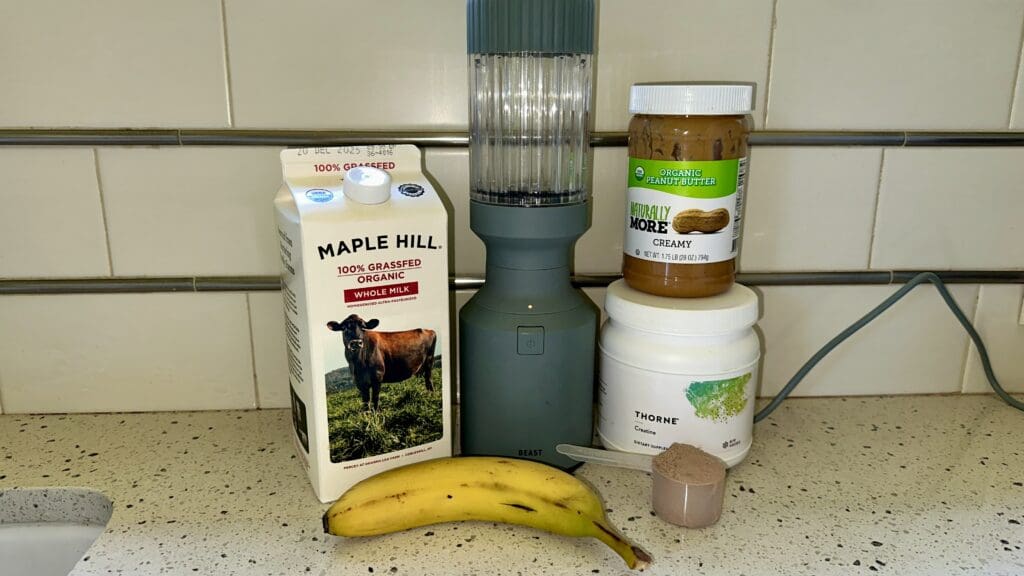
The brand I use: Thorne Creatine— it’s NSF Certified for Sport (rigorously tested for purity), clean, and effective.
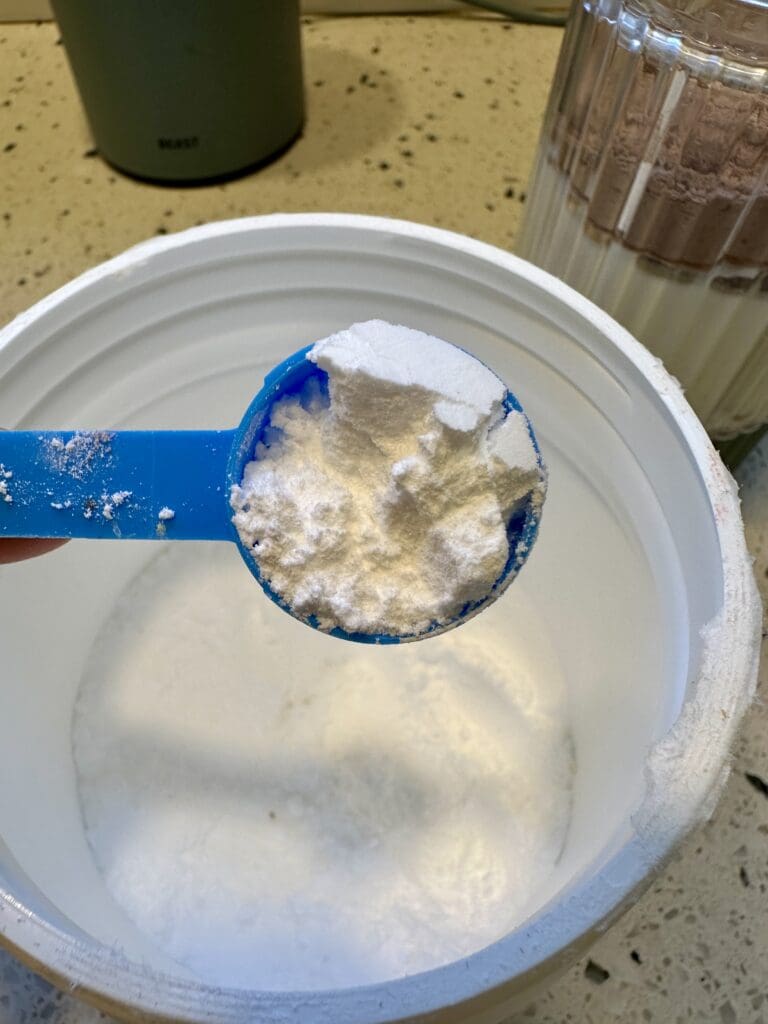
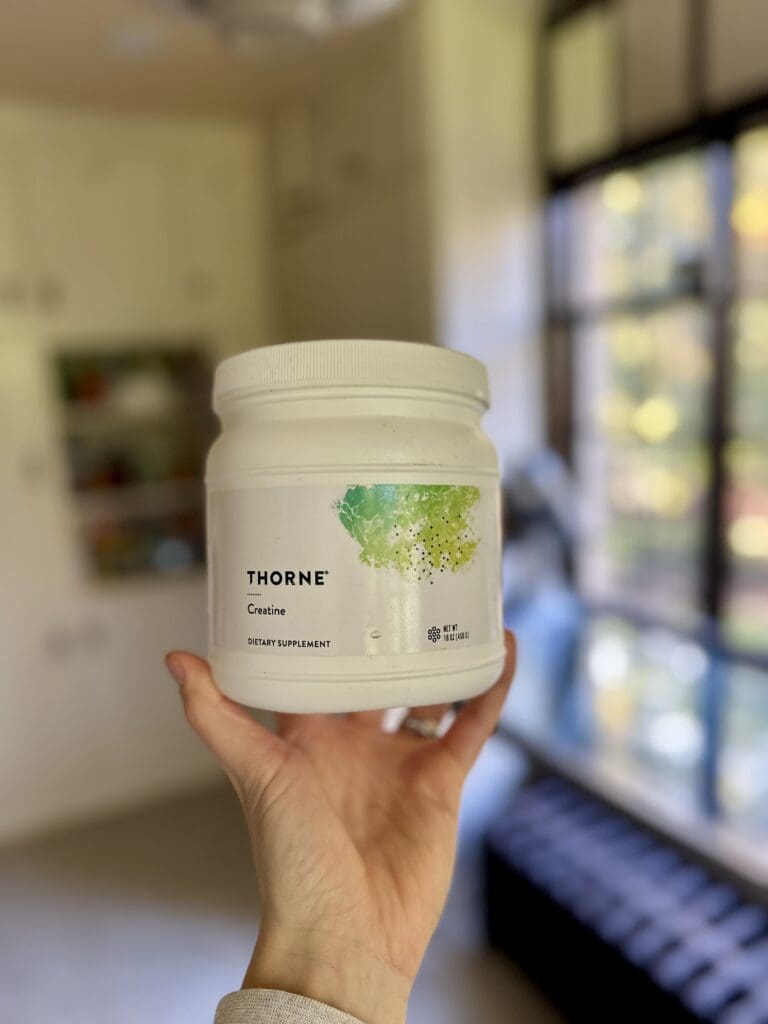
What I pair it with: Omega-3s, a good multivitamin, and vitamin D for overall brain health support.
Hydration: Drink at least 8 glasses of water daily when taking creatine.[^4]
Your Questions Answered (Creatine FAQs)
“Won’t creatine make me bulky?”
No. Creatine doesn’t cause muscle growth on its own. It helps muscles work harder during intense exercise.[^4] If you’re not doing heavy resistance training, you won’t bulk up. For most women taking it for brain health, this isn’t a concern at all.[^2]
“Will I get bloated?”
Minimal for most women. Creatine can cause mild water retention in muscle cells (not subcutaneous bloating), but again, this is typically only noticeable with intense strength training.[^4][^5] Many women report no changes in appearance. Staying hydrated helps.
“Is it safe for women?”
Yes. Creatine is one of the most researched supplements with hundreds of clinical trials supporting its safety.[^2][^4][^5] It’s safe for continuous daily use—no cycling required. However, if you’re pregnant, breastfeeding, or have kidney issues, talk to your doctor first.[^3][^4]
“Do I need to cycle off creatine?”
No. Research shows continuous supplementation is safe and effective.[^4][^5] Your body doesn’t build up a tolerance.
“Can I take creatinewhile pregnant or breastfeeding?”
Research is limited, so consult your healthcare provider. Early evidence is promising tho! Breast milk naturally contains creatine, and low creatine in pregnancy has been linked to poor fetal growth.[^3] But more human trials are needed before blanket recommendations can be made.
I am currently breastfeeding, and have the sign off from my pediatrician at 5-10g, but please consult with yours before you start use.
Who Should Consider Creatine?
Based on the research, creatine may be especially helpful for:[^2][^3]
✅ Postpartum mothers dealing with brain fog
✅ Women with ADHD seeking cognitive support (Some emerging studies are exploring creatine’s potential effects on attention and cognitive function, but it’s not an approved treatment for ADHD)
✅ Perimenopausal/menopausal women with hormonal brain fog
✅ Anyone with chronic sleep deprivation (hello, parents)
✅ Vegetarians/vegans (who consume little dietary creatine)
✅ Women 40+ experiencing cognitive changes
✅ Those seeking mood support
✅ Women during the luteal phase (energy dips)
✅ Anyone managing chronic stress and mental fatigue
The Bottom Line
If you’re a woman dealing with brain fog, whether it’s postpartum, perimenopause, ADHD, or just the exhaustion of keeping tiny humans alive, I’d highly recommend giving creatine a try.
Your action plan:
- Consult your healthcare provider (especially if pregnant, breastfeeding, or have kidney concerns)
- Start with 3-5g daily and assess how you feel
- Stay consistent for at least 8 weeks (that’s when research shows benefits)[^1]
- Stay hydrated (at least 8 glasses of water daily)[^4]
- Track your experience (mental clarity, focus, mood, energy)
- Consider increasing to 8-12g daily if you want more cognitive support[^1]
Your brain deserves all the support it can get. And creatine might just be the missing piece you didn’t know you needed.
[^1]: Smith et al., 2025. University of Kansas Alzheimer’s Study [^2]: Smith-Ryan et al., 2021. Journal of the International Society of Sports Nutrition [^3]: Multiple studies on creatine supplementation during pregnancy and postpartum [^4]: International Society of Sports Nutrition position stand on creatine [^5]: Systematic reviews on creatine safety and efficacy [^6]: University of Kansas Medical Center press release, 2025 [^7]: 2024 systematic review and meta-analysis on creatine and memory [^8]: Studies on creatine and sleep deprivation [^9]: Dr. Daniel Amen interviews and publications [^10]: Brain health optimization research [^11]: Product research and pricing data [^12]: BCAA and protein synthesis research
This article reflects my personal experience and publicly available research. It is for informational purposes only and not medical advice. Always consult your healthcare provider before starting any supplement, especially during pregnancy or breastfeeding.
This post contains affiliate links. I only recommend products I personally use and love. As an Amazon Associate (or applicable affiliate), I may earn from qualifying purchases.
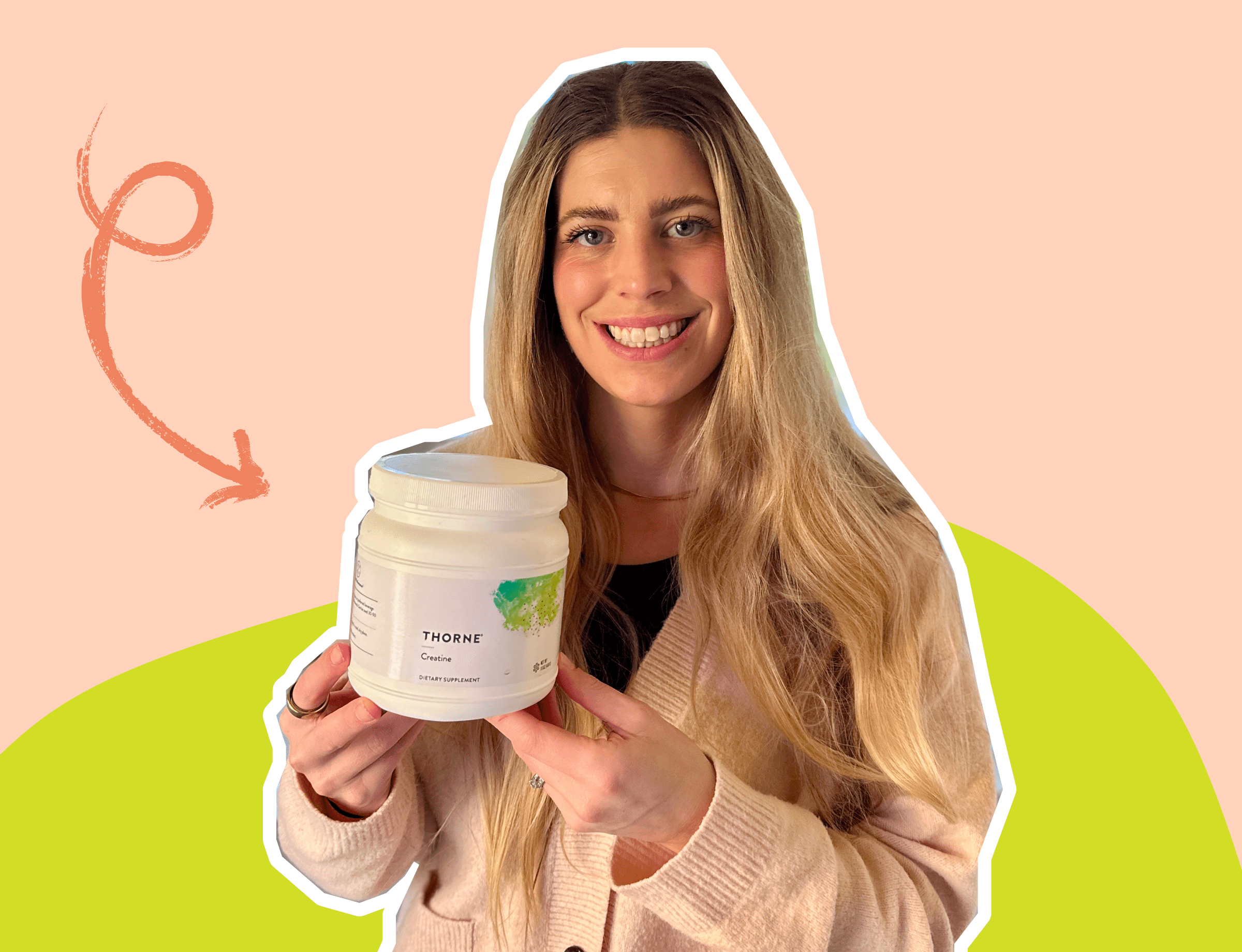
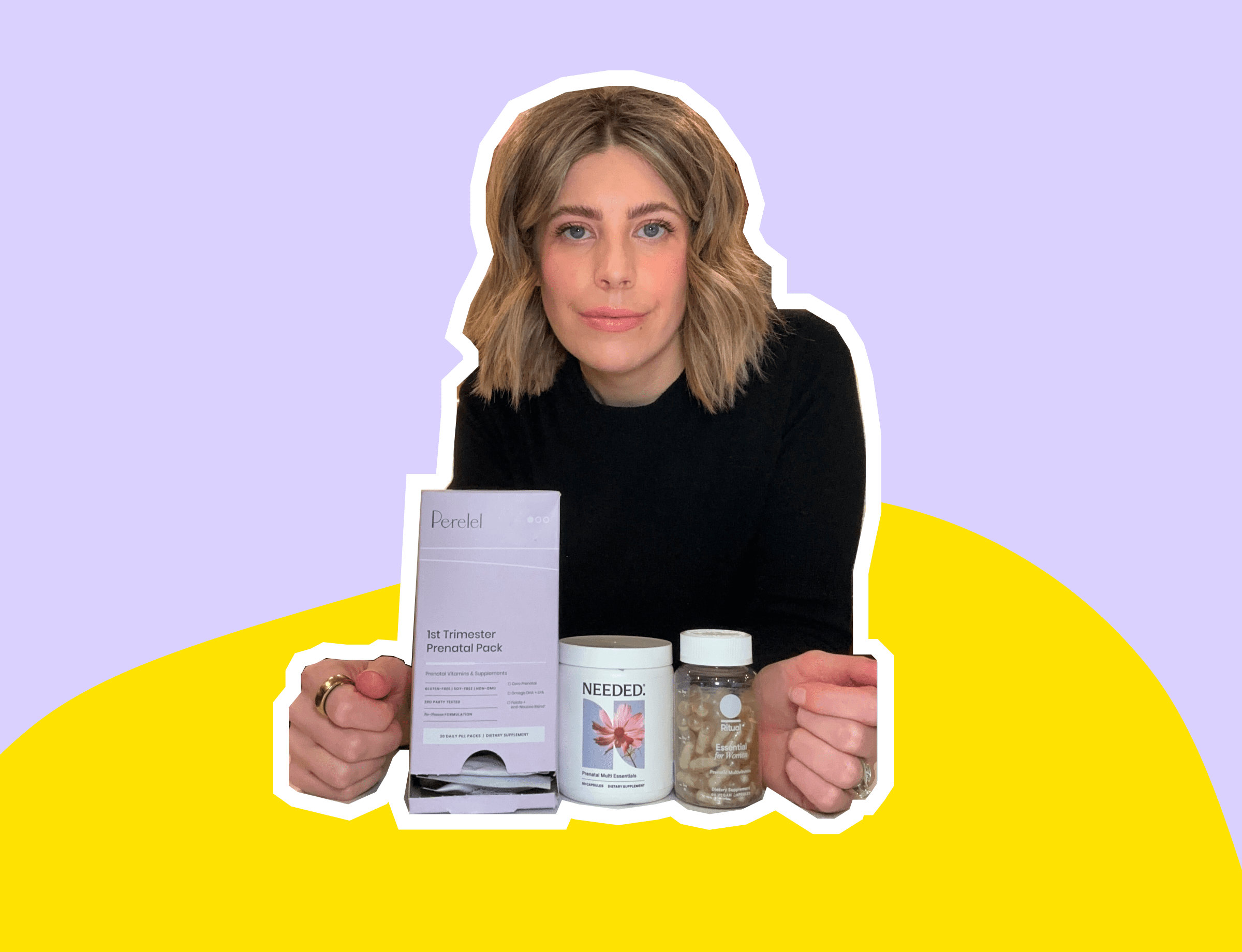
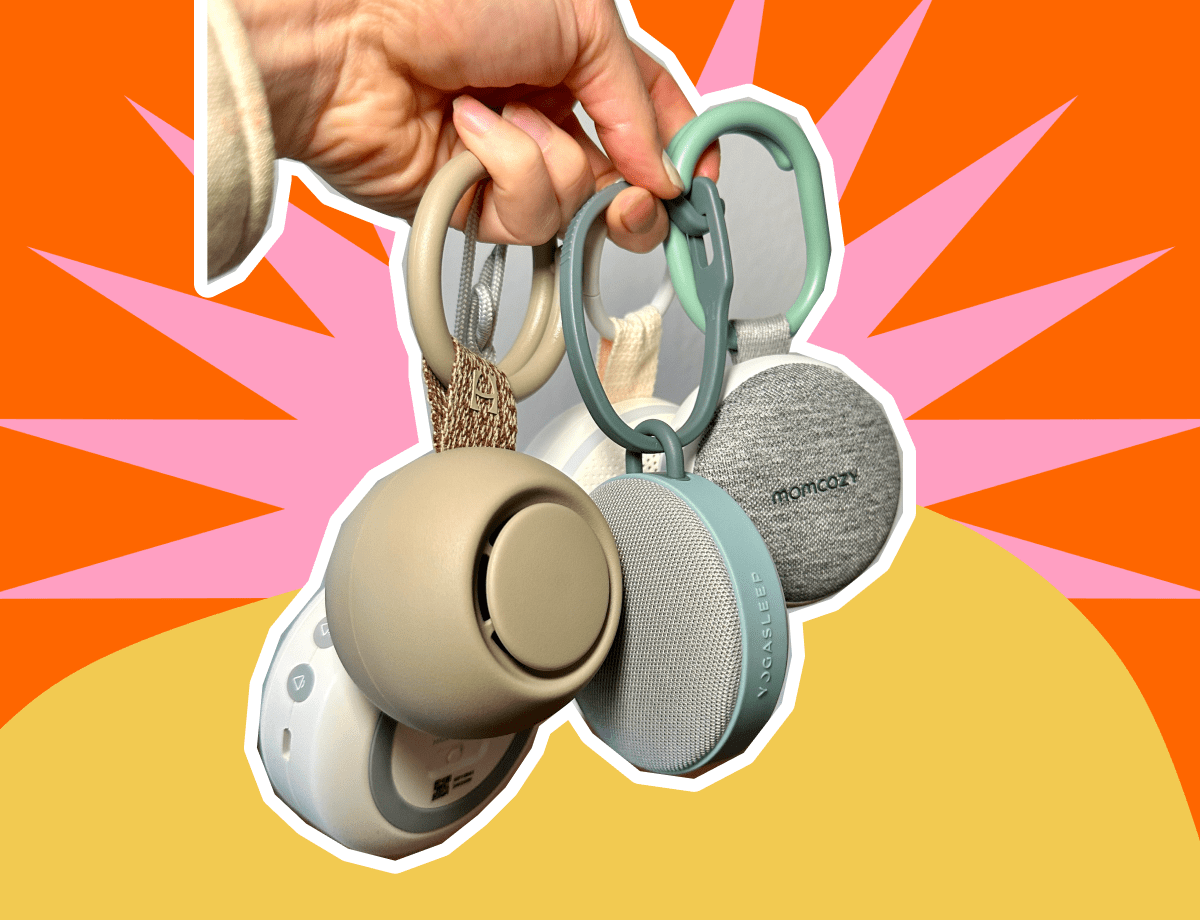
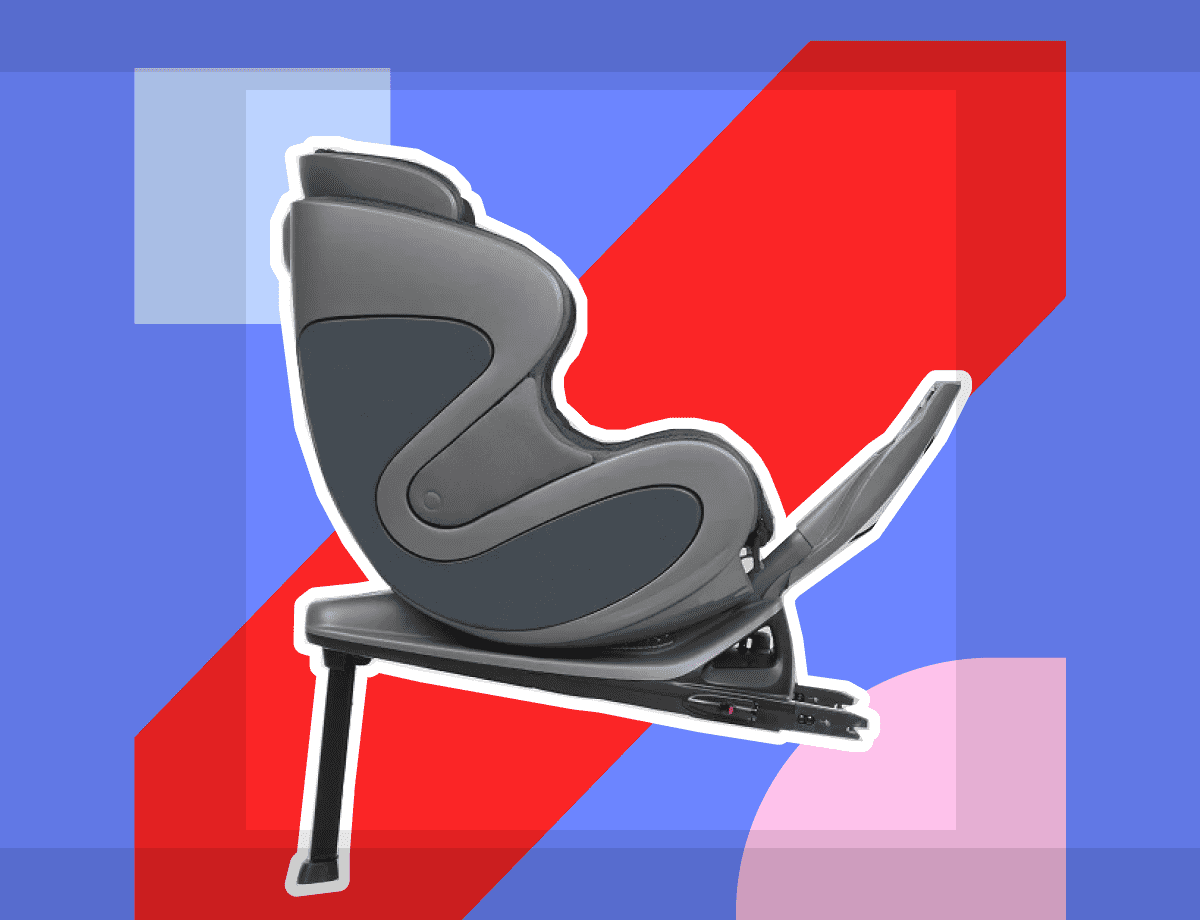
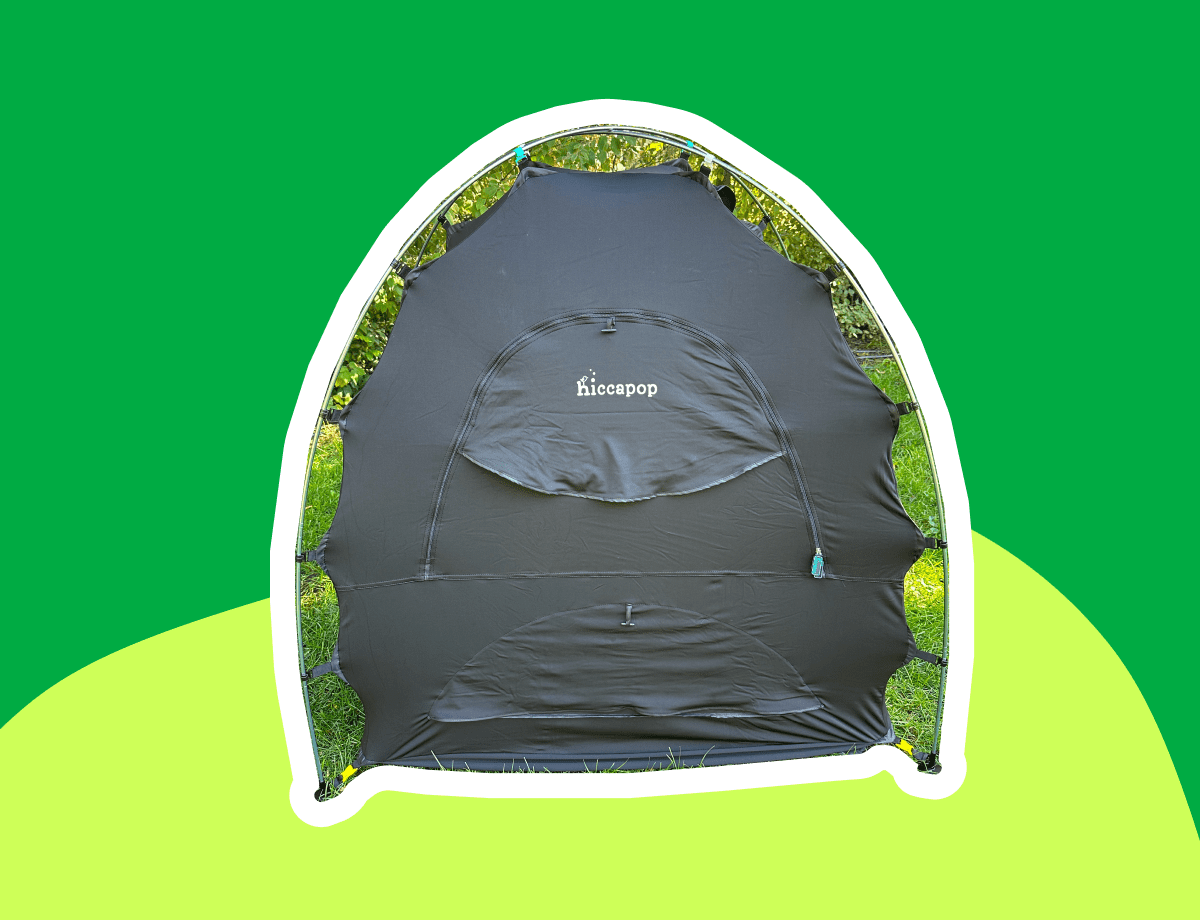
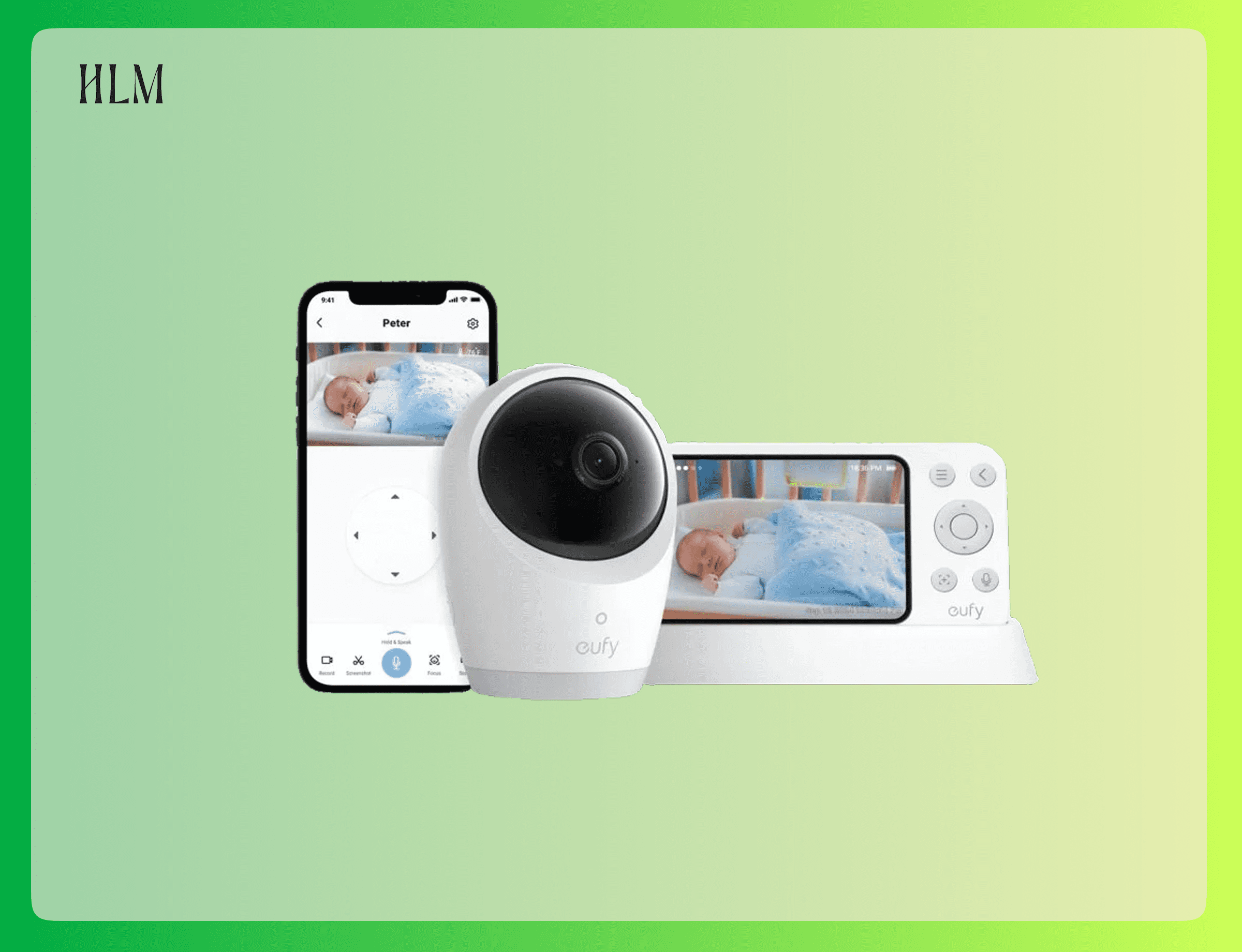


View comments
+ Leave a comment